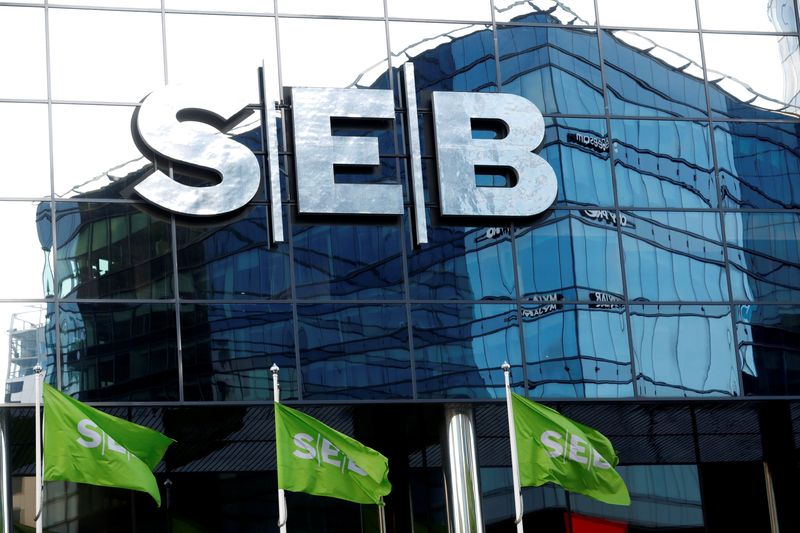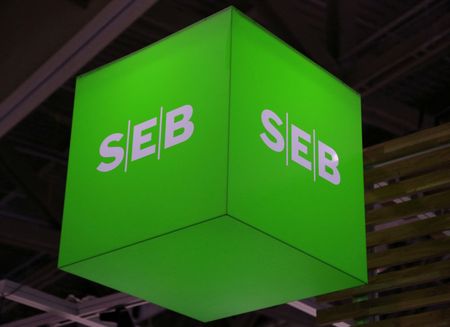By Niklas Pollard
STOCKHOLM (Reuters) -Swedish banking group SEB beat fourth-quarter net profit forecasts on Thursday on higher interest income after central bank rate hikes and trading gains, prompting it to boost its proposed dividend.
Surging inflation, in part due to the energy crisis stemming from the war in Ukraine, has seen central banks crank up rates while the financial pressure on households and businesses has yet to translate into painful loan losses.
Net profit at Sweden's top corporate bank rose to 7.43 billion Swedish crowns ($728.8 million) from 6.20 billion a year earlier, beating a mean forecast of 7.15 billion in a Refinitiv poll of analysts.
"During the fourth quarter, the unprecedented macroeconomic environment continued to impact customer sentiment, activity and our results," CEO Johan Torgeby said in a statement.
"Nevertheless, savings buffers built up during the pandemic contributed to surprisingly resilient demand and consumption, while labour markets remained strong."
The first of Sweden's top banks to report for the fourth quarter, SEB posted interest income, including revenue from mortgages, of 9.72 billion crowns, up from 6.72 billion a year earlier and above the 9.49 billion expected by analysts.
However, trading income, typically a less certain source of revenue than interest income, accounted for a significant part of the earnings beat as it more than doubled from a year earlier to 3.50 billion crowns.
Analysts at Citi said in a research note that SEB had delivered a "low quality beat" with core revenue broadly in line with expectations.
SEB shares were down 3.0% by 0901 GMT while other Swedish banking stocks also dipped.
Fee and commission income at the bank fell to 5.42 billion crowns from 5.89 billion a year earlier, just topping the mean forecast of 5.34 billion.
Net expected credit losses rose to 506 million crowns from 299 million a year earlier.
SEB proposed raising its dividend to 6.75 crowns per share from 6.00 crowns, higher than analysts' estimate of 6.23 crowns.

Soaring inflation has also raised cost pressures for SEB, which set a cost target of 26.5 billion crowns to 27 billion crowns for 2023, based on currency rates last year, compared to spending of 25 billion crowns in 2022.
($1 = 10.1946 Swedish crowns)
